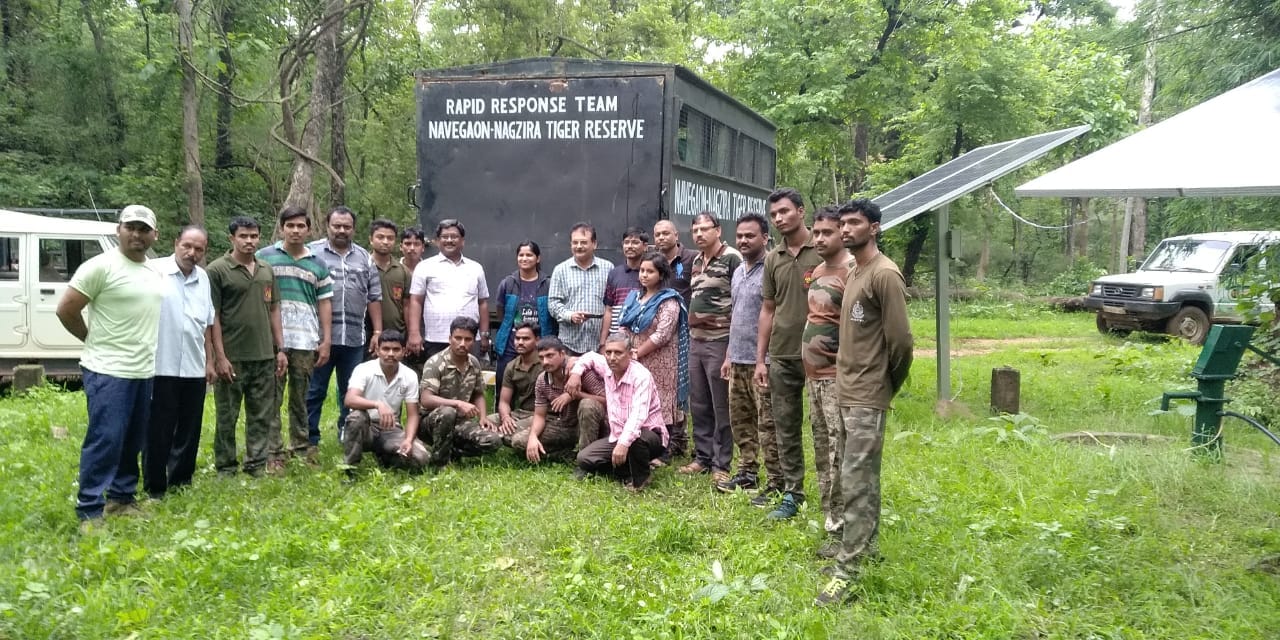New Delhi,28 July 2018:The shrinking habitats of wild animals due to escalating human population result in unsolicited and inevitable encounters between humans and wild animals in and around forests, leading to human-wildlife conflict. Wildlife Trust of India’s (WTI) Rapid Response Team (RRT) was established to provide an expert emergency response to such conflict situations and address human big-cat conflict proximally. Comprising of three skillsets – a trained wildlife biologist, a sociologist and a wildlife veterinarian, the RRT is equipped with requisite equipment and a vehicle to efficiently address big cat conflict situations. In a conflict situation, each component of RRT brings together their expertise and strives to mitigate conflict without bringing the lives of people and the animal involved in danger. This includes intensive monitoring and identification of the animal by the biologist, awareness and crowd control by the sociologist, and if required, chemical capture and relocation of the animal involved with the help of the trained veterinarian.

Currently, the RRT is operational at two places – the Dudhwa Pilibhit landscape in Uttar Pradesh and the Vidarbha landscape in Maharashtra. Since its establishment, the RRT has attended to several human-tiger conflict cases and directly intervened in 9 tiger conflict cases in Vidarbha landscape and 13 tiger cases in Dudhwa-Pilibhit. This involved intensive and regular monitoring of the tiger to avert any possible conflict in villages; providing safe passage; and direct capture and relocation of the tiger. Apart from direct interventions, the RRT plays an important role in other aspects that indirectly contribute to human-tiger conflict mitigation and ultimately tiger conservation. These include awareness and sensitization of local communities, training of Frontline Forest Staff (FFS), treatment of other wild animals in distress, and conducting livestock immunisations camps.

This holistic approach aims at addressing human-big cat conflicts in the landscape using a proactive and multipronged strategy that could prove favourable to the wild animals and humans involved in conflict situations.